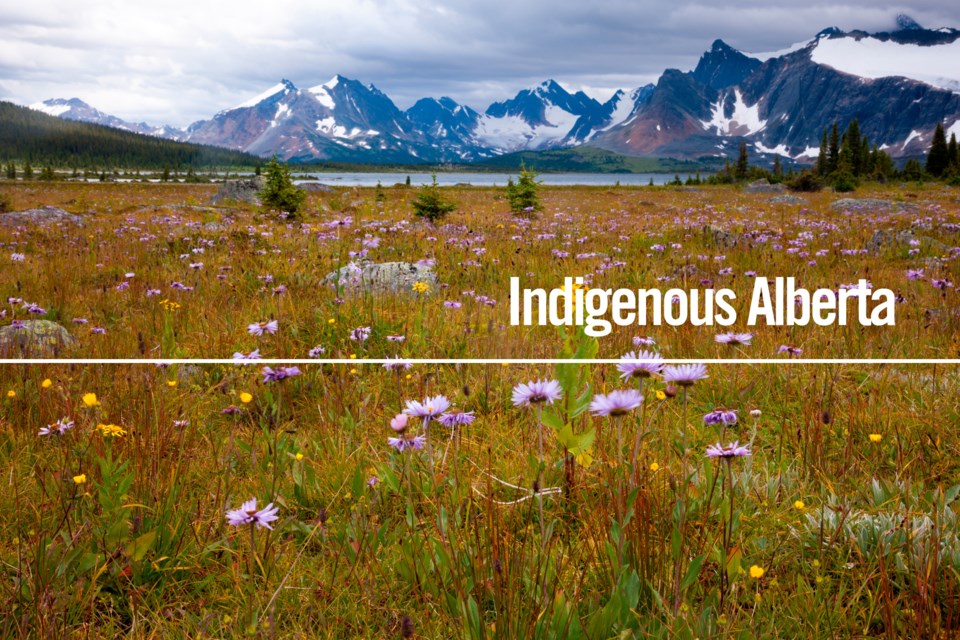The delivery of COVID vaccinations is underway in Alberta and the arrival of the vaccines couldn’t be more welcome as many Indigenous Nations in the province have been reporting high COVID numbers and declaring states of emergencies.
The initial 16,900 doses were to be sent to long-term care facilities in Edmonton, Calgary, Medicine Hat, Lethbridge, Grande Prairie, St. Paul, Fort Saskatchewan and six congregate living facilities on First Nations.
According to information released by the federal government, Alberta's indigenous communities have been the hardest hit across Canada. As of January 11, Alberta accounted for almost one third of the cases - 3639 out of a total 11229 - identified on First Nations.
Canada’s Indigenous communities have been recognized as a priority population for COVID-19 immunization by the National Advisory Committee on Immunization.
Alberta Health says individuals on First Nations reserves aged 65 and up are currently prioritized in Phase 1B of the province’s vaccination schedule slated for February.
Stoney Nakoda First Nation has been reporting high numbers of COVID cases causing the Nation to declare a State of Emergency and Necessary Action on January 12.
An update posted onto their Facebook page reads, “The Director of Emergency Management in conjuction with other members of the Incident Command Team have determined that a state of emergency exists within the Stoney Nakoda towns of Morley, Big Horn and Eden Valley due to the unprecedented increase in positive COVID-19 cases.”
In order to combat the spread of the virus, Stoney Nakoda advised anyone who exhibited symptoms to follow a four-step protocol: follow the advice of health professionals (including assisting with contact tracing), self-isolate, wear a mask and practice hand hygiene, and avoid all non-essential travel.
The band council also signed a resolution effectively banning house-to-house visits and instilled a curfew from 8 p.m. to 6 a.m. except for work, health or emergency purposes. On-nation funerals and wakes will no longer be allowed either.
As of Sunday, Jan. 10, there were 86 active cases. Sunday there were 13 new cases.
Siksika First Nation in southern Alberta, located about 100 kilometres east of Calgary, has received its first 100-dose shipment and the first doses of the Moderna COVID-19 vaccine were distributed to residents and staff at a care facility.
Siksika Health Services (SHS) said that securing the vaccinations was a top priority because they needed to protect their most vulnerable people and their elders.
“Having comprehensive local health services to support our COVID-19 response has been a top priority of our organization from day one; local access to the COVID-19 vaccine is a hopeful next step in this regard,” Naa Taoyi Piita Wo Taan, Tyler White, corporate executive officer of SHS, was quoted as saying.
“It has not been easy and I commend our health services team for our collective and tireless work in providing necessary services, all the while advocating for equitable access for our Nation members.”
Ouray Crowfoot, chief of Siksika First Nation, was quoted as saying earlier this week, “We are pleased to see that a safe and effective vaccine has been developed so quickly and made available to our most vulnerable nation members and their care providers.”
“Our health services continue to plan for a staged roll-out of additional vaccine to other priority groups in the near future.”
According to its website, Siksika Nation has approximately 7,500 members living on-reserve and as of Dec. 29, there were 12 active cases — totalling 323 cases reported on the First Nation.
In 2020, Siksika closed all of its schools and its homeless shelter as well as enforced a curfew.
Maskwacis and its four First Nations – Samson, Ermineskin, Montana and Louis Bull – have been hit hard by COVID. A state of local emergency has been in place since March and according to Alberta Health (as of Jan. 10) Maskwacis has 645 active cases and eight deaths, with over 2,100 cases to date.
Randy Littlechild, CEO of Maskwacis Health Services, “Our only hope is the vaccine and getting access to that, which the government says we’re supposed to as a priority nation. But we’re certainly not getting that very quickly,” he says.
“They have a treaty obligation to provide it to us. There is a clause called the Medicine Chest Clause and it says in cases of famine and pestilence the government or Crown is supposed to provide aid for the First Nations. A pandemic is pestilence.”
Littlechild recalls being told Maskwacis would be receiving vaccines the week of Jan. 14.
“I’m getting conflicting stories because the province distributes it out to different sites, so we’re stuck, we’re waiting,” laments Littlechild, referring to the news that some local home care workers from Maskwacis have already accepted invitations to receive doses of the Pfizer vaccine in Red Deer and Camrose.
However, Alberta Health Services says it continues to meet regularly with Indigenous communities to support them, “We have an excellent partnership with Maskwacis Health Services and are working closely with local health services, as well as government partners at all levels to support the pandemic response measures in Maskwacis,” a statement reads.
“The community has established dedicated isolation trailers to support their residents in self-isolating when they may be unable to do so appropriately at home. AHS has supported the addition of a fourth EMS crew in the community, and AHS Medical Affairs has been recruiting local physicians to help provide medical support to those in the isolation trailers.”
“AHS Public Health is also supporting localized COVID-19 swabbing, helping enhance access,” the statement continues. “In the coming weeks, AHS Public Health is working closely with our partners in Maskwacis to plan for vaccine distribution. AHS is prepared to provide staffing supports to provide immunizations as needed in collaboration with Maskwacis Health Services and FNIH.”
Jacob Cardinal, Local Journalism Initiative Reporter
Read more from AlbertaNativeNews.com



